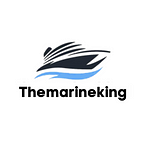What Hose is Suitable for Drinking Water
When it comes to accessing clean and safe drinking water, every detail matters, including the type of hose you use. Whether you’re filling up your RV tank, watering your garden, or connecting to a potable water source, selecting the right hose is crucial to ensure the water remains safe for consumption. In this comprehensive guide, we’ll explore everything you need to know about choosing a hose suitable for drinking water, ensuring the health and well-being of you and your loved ones.
Understanding the Importance of Hose Selection
Not all hoses are created equal, and using the wrong type of hose for drinking water can pose serious health risks. Here’s why hose selection matters:
Some of the Top Hose on The Market
- Contaminant Leaching: Some hoses contain harmful chemicals such as lead, phthalates, and BPA, which can leach into the water and cause health problems when consumed.
- Microbial Growth: Hoses that are not designed for drinking water may harbor bacteria, mold, and other microorganisms, contaminating the water and posing health hazards.
- Taste and Odor: Low-quality hoses may impart unpleasant tastes or odors to the water, affecting its quality and palatability.
Choosing a Hose for Drinking Water
When selecting a hose for drinking water, consider the following factors to ensure safety and quality:
1. Material Composition:
Opt for hoses made from materials approved for potable water use, such as:
- Drinking Water Safe:
- Polyurethane: Durable and flexible, polyurethane hoses are resistant to kinks, abrasion, and UV damage, making them ideal for drinking water applications.
- Rubber: Rubber hoses are often reinforced with food-grade materials and are resistant to chemicals and abrasion, ensuring safe drinking water delivery.
2. Certification and Standards:
Look for hoses that meet industry standards and certifications for drinking water safety, such as:
- NSF/ANSI 61: NSF/ANSI 61 certification ensures that hoses are tested and certified for compliance with health and safety standards for drinking water systems.
- FDA Approval: Hoses approved by the U.S. Food and Drug Administration (FDA) for contact with food and potable water are safe for drinking water use.
3. Size and Length:
Choose a hose size and length that suits your specific needs and applications, ensuring sufficient water flow and reach without excess waste or inefficiency.
4. Durability and Flexibility:
Select a hose that is durable, flexible, and resistant to kinks, tangles, and abrasion, ensuring longevity and ease of use over time.
5. Maintenance and Care:
Regularly clean and sanitize your drinking water hose to prevent microbial growth and contamination. Follow manufacturer guidelines for maintenance and storage to prolong the life of the hose and ensure water quality.
Conclusion
Choosing the right hose for drinking water is essential for maintaining clean, safe, and healthy water supplies for drinking, cooking, and other domestic uses. By selecting hoses made from approved materials, meeting industry standards and certifications, and considering factors such as size, durability, and maintenance, you can ensure that your drinking water remains free from contaminants and safe for consumption. So, invest in a high-quality drinking water hose today and enjoy peace of mind knowing that your water supply is safe and reliable. Cheers to clean water and good health!
